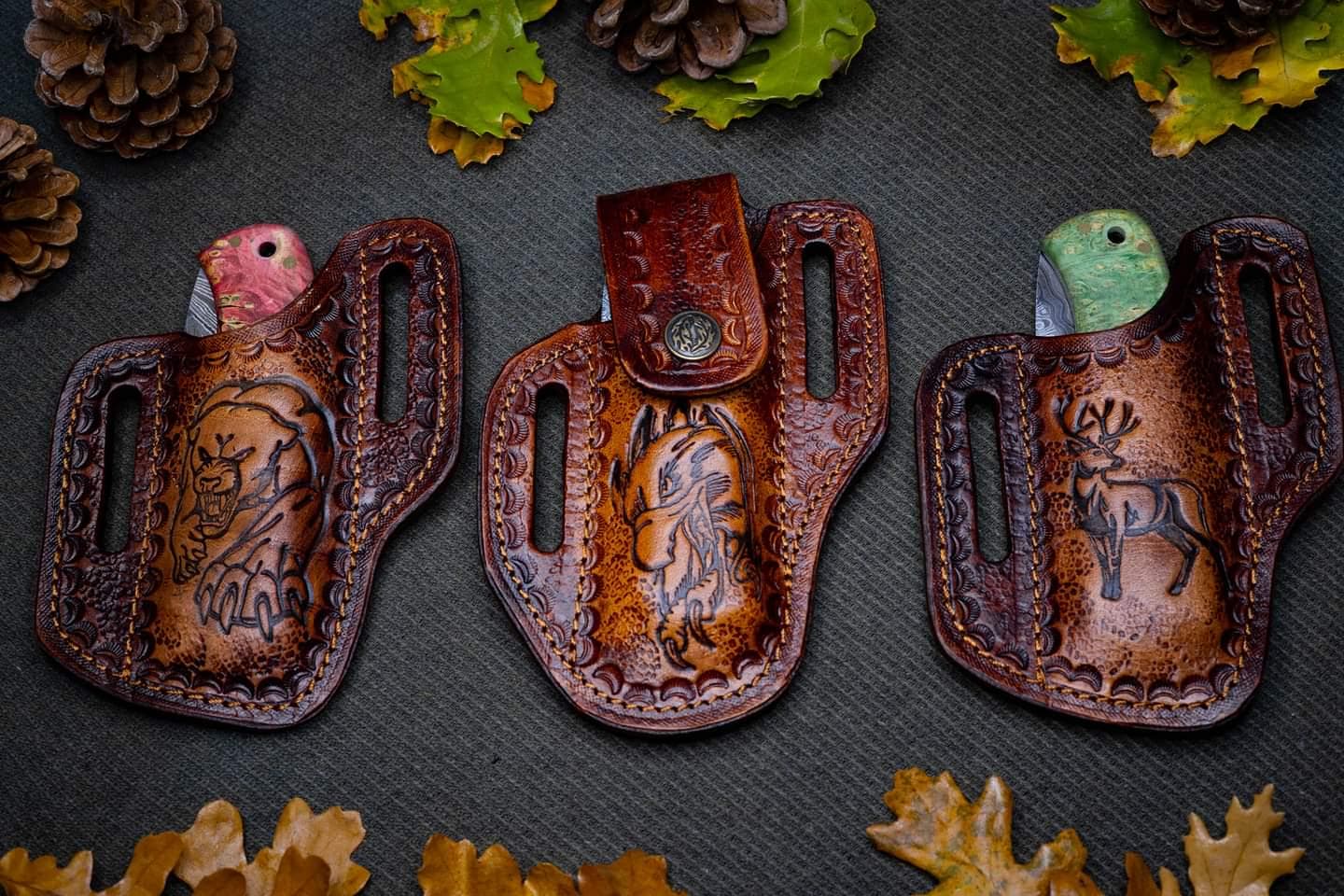1. Design and Pattern Making
- Place the knife on a sheet of paper and trace its outline.
- Add extra space for stitching (usually 0.5–1 cm around the knife).
- Design both the front and back panels and any belt loops.
- Transfer the paper pattern onto the leather using a scratch awl or pencil.
2. Leather Selection and Cutting
- Choose vegetable-tanned leather (2–3 mm thickness is ideal).
- Cut out the sheath components using a sharp knife or rotary cutter.
- Be precise — clean, accurate cuts make assembly easier.
3. Edge Beveling and Burnishing (Optional)
- Use an edge beveler to round the corners of each piece.
- Burnish edges with water and a wooden slicker for a smooth finish.
4. Dyeing and Conditioning
- Apply leather dye evenly across all pieces if color is desired.
- Let dry, then condition with neatsfoot oil or leather balm.
5. Punching Stitch Holes
- Mark a consistent stitch line using a wing divider.
- Use a stitching chisel or pricking iron to punch evenly spaced holes along the stitch line.
- Ensure holes go through both layers if the sheath is already glued.
6. Saddle Stitching by Hand
- Thread two needles onto each end of a waxed thread.
- Start stitching through the first hole, pulling both needles through in opposite directions.
- Repeat the process for each hole, keeping tension even for a clean look.
- Tie off the thread and backstitch 2–3 holes for extra strength.
7. Shaping and Wet Molding (Optional)
- Soak the finished sheath in warm water for 1–2 minutes.
- Insert the knife and press around it to shape the leather.
- Let it dry with the knife inside for a custom fit.
8. Finishing Touches
- Burnish the edges again if needed.
- Apply a final layer of leather balm or wax for protection.
- Add rivets or snaps if your design includes them.
Conclusion
Handmaking a leather knife sheath using saddle stitching is a timeless craft. It offers both beauty and durability while providing a secure fit for your blade. With patience and the right tools, anyone can create a sheath that’s both functional and artisanal.

